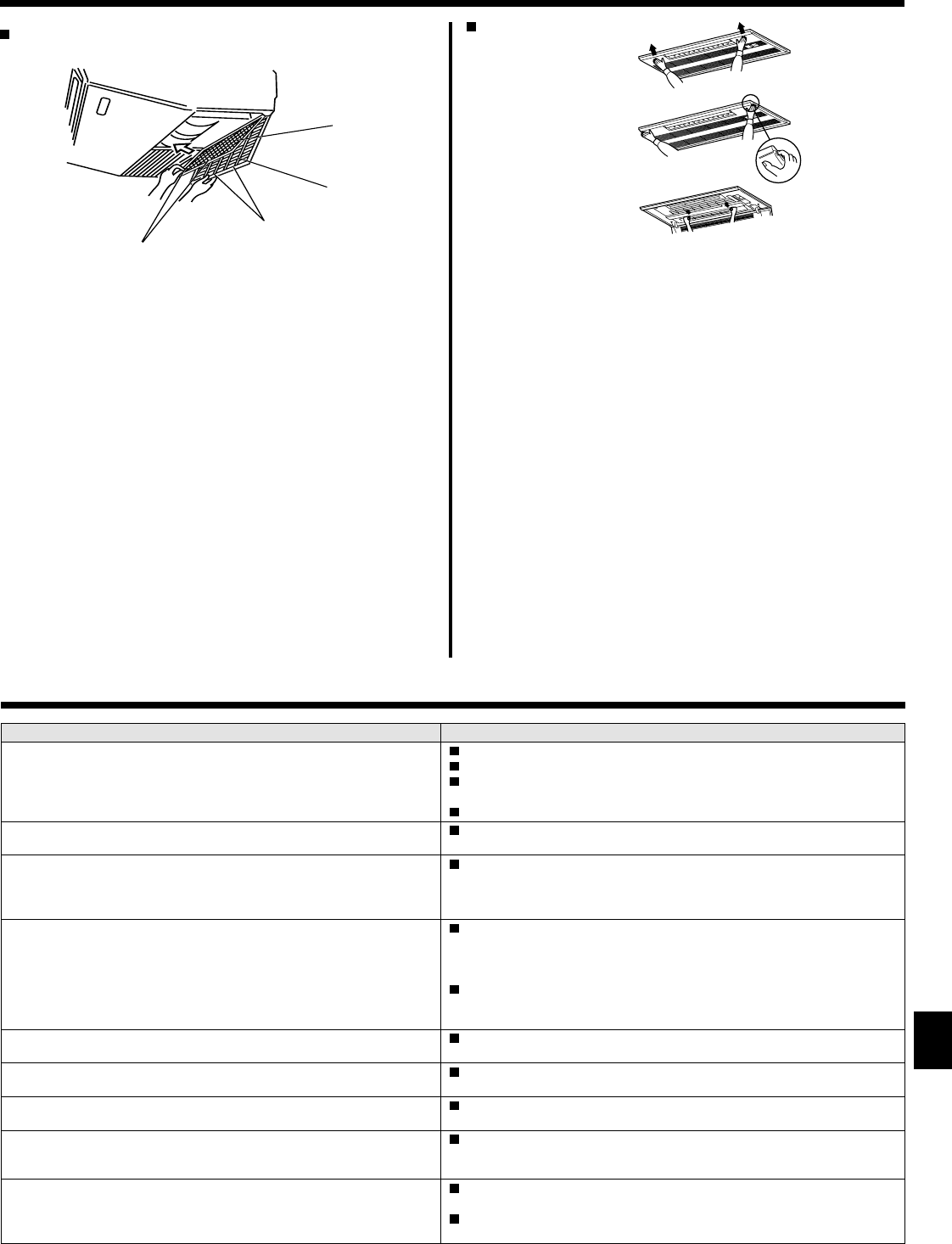
17
1
Open the intake grille.
2
Hold the knob on the fi lter then pull the fi lter up in the direction of
an arrow. To replace the fi lter after cleaning, be sure to insert the
fi lter far enough until it fi ts into the stopper.
A
Filter
B
Intake Grille
C
Knob
D
Stopper
PMFY-P·NBMU-E
1
Pressing the PUSH button on the outer side of the intake grille
causes the intake grille to open.
2
A fi lter with an intake grille on it can be removed by pulling the fi lter
forward.
10. Care and Cleaning
PCFY-P·NKMU-E
A
B
C
D
11. Trouble Shooting
Having trouble? Here is the solution. (Unit is operating normally.)
Air conditioner does not heat or cool well.
Clean the fi lter. (Airfl ow is reduced when the fi lter is dirty or clogged.)
Check the temperature adjustment and adjust the set temperature.
Make sure that there is plenty of space around the outdoor unit. Is the
indoor unit air intake or outlet blocked?
Has a door or window been left open?
When heating operation starts, warm air does not blow from the indoor
unit soon.
Warm air does not blow until the indoor unit has suffi ciently warmed up.
During heating mode, the air conditioner stops before the set room
temperature is reached.
When the outdoor temperature is low and the humidity is high, frost
may form on the outdoor unit. If this occurs, the outdoor unit performs a
defrosting operation. Normal operation should begin after approximate-
ly10 minutes.
Airfl ow direction changes during operation or airfl ow direction cannot
be set.
During cooling mode, the vanes automatically move to the horizontal
(down) position after 1 hour when the down (horizontal) airfl ow direction
is selected. This is to prevent water from forming and dripping from the
vanes.
During heating mode, the vanes automatically move to the horizontal
airfl ow direction when the airfl ow temperature is low or during defrost-
ing mode.
When the airfl ow direction is changed, the vanes always move up and
down past the set position before fi nally stopping at the position.
When the airfl ow direction is changed, the vanes move to the set posi-
tion after detecting the base position.
A fl owing water sound or occasional hissing sound is heard.
These sounds can be heard when refrigerant is fl owing in the air condi-
tioner or when the refrigerant fl ow is changing.
A cracking or creaking sound is heard.
These sounds can be heard when parts rub against each due to expan-
sion and contraction from temperature changes.
The room has an unpleasant odor.
The indoor unit draws in air that contains gases produced from the
walls, carpeting, and furniture as well as odors trapped in clothing, and
then blows this air back into the room.
A white mist or vapor is emitted from the indoor unit. If the indoor temperature and the humidity are high, this condition may
occur when operation starts.
During defrosting mode, cool airfl ow may blow down and appear like a
mist.


















